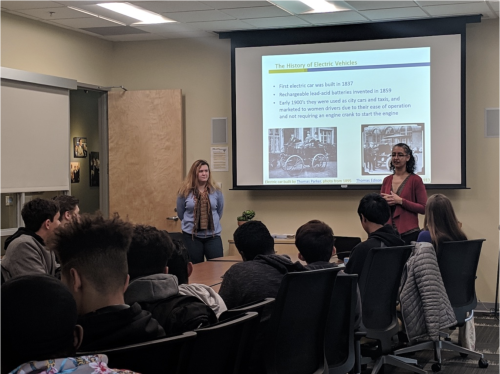One of the goals of the National Center for Sustainable Transportation is to ensure that current and future transportation professionals are equipped with the necessary knowledge and skills to design, operate, and maintain sustainable transportation systems. The goal of the sustainable transportation education program is to develop materials that will produce graduates (and train practitioners) capable of using and improving analytical tools for assessing sustainable transportation systems.

Curriculum & Courses
The NCST sponsors sustainable-transportation K-12 curriculum, college-level courses, and advanced training programs for professionals.

Video Lectures
Sustainable Transportation Concepts: A Mini-Lecture Series
In 2019, the NCST launched its video lecture series titled, “Sustainable Transportation Concepts: A Mini-Lecture Series,” which aims to supplement college-level courses with sustainable transportation-related material.
Click here to view the full series.

Field Trips
The National Center for Sustainable Transportation has hosted students of multiple grade levels. Junior high and high school students have toured UC Davis to provide an overview of the Institute of Transportation Studies, tour electric vehicles and charging stations, and engage in small group discussions with NCST researchers, faculty, staff, and grad students. Visiting students had the opportunity to discuss and explore potential future opportunities in research and educational paths.
For field trip opportunities at ITS-Davis, please contact Anna Espitallier.

NCST Online Calculators & Planning Tools
NCST research has produced a variety of tools that can be used by policymakers and practitioners towards achieving a more sustainable transportation system.
